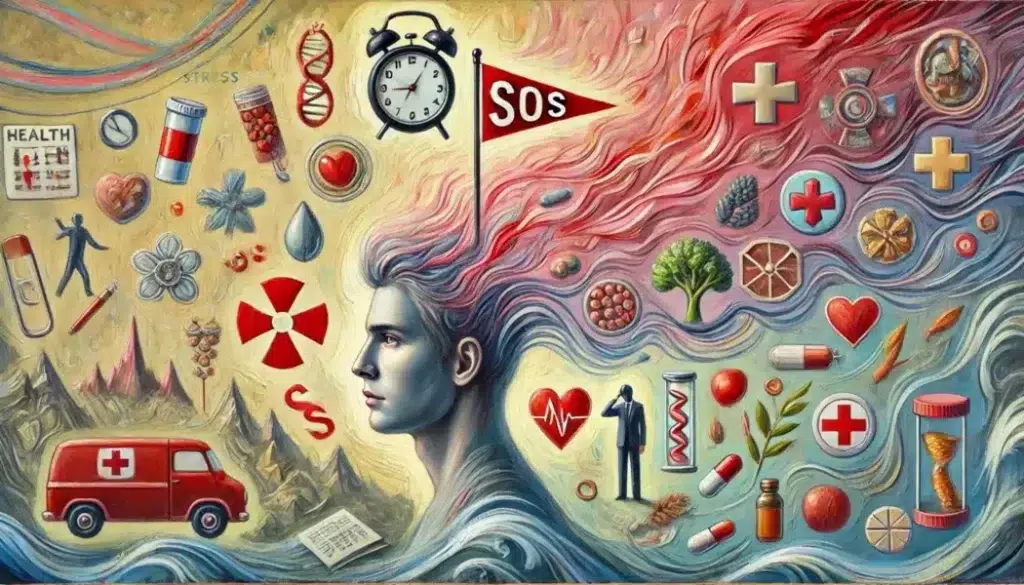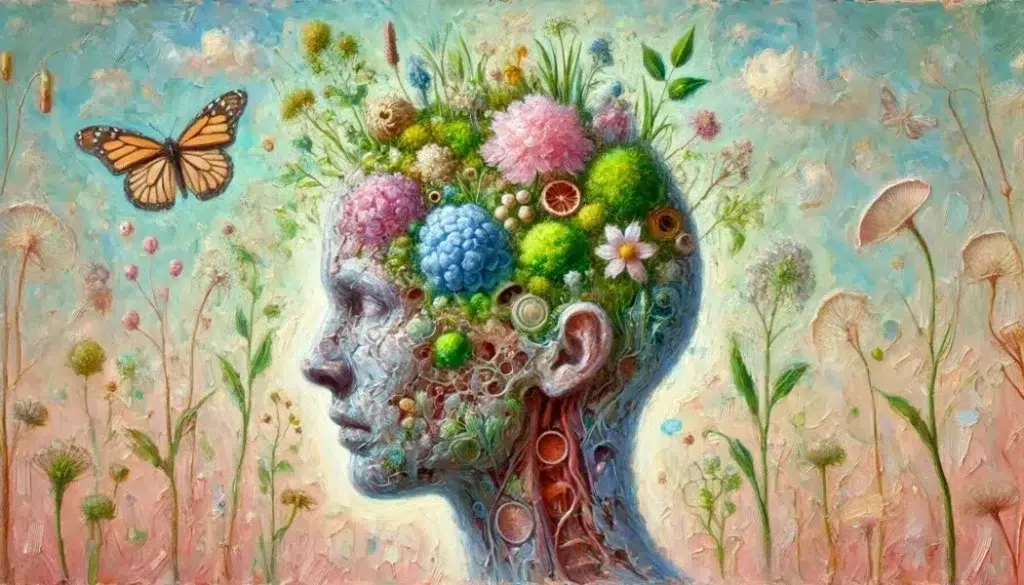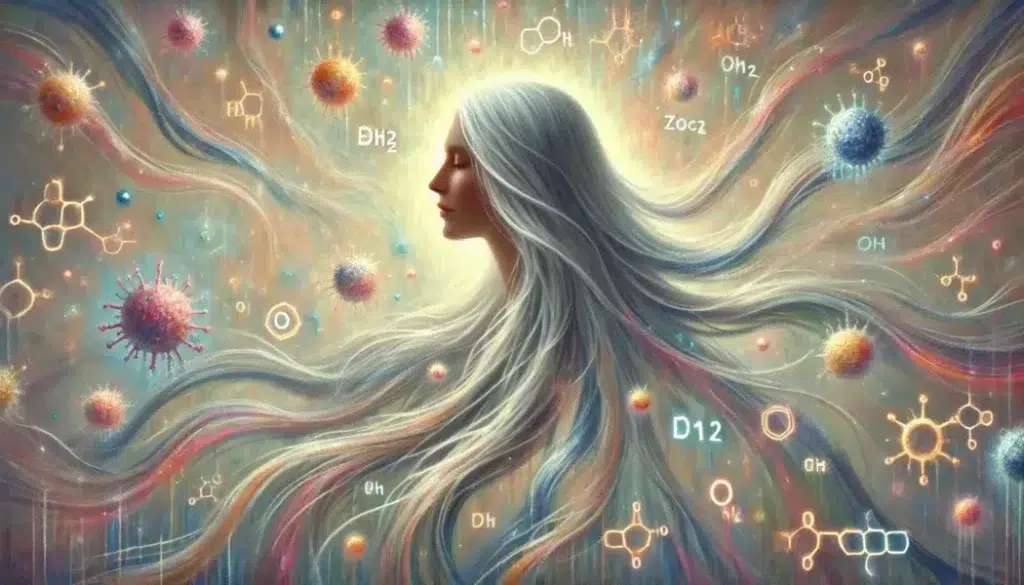Hair isn’t just there to complete your look or keep your head warm—it’s a surprisingly honest mirror of your overall health. Ever noticed sudden thinning? That might not just be a cosmetic issue. Unexpected hair loss can be your body’s way of waving a red flag, pointing to stress, nutritional deficiencies, or even underlying medical conditions. In fact, what looks like a “bad hair day” might be your body’s early SOS signal. 🆘
If this sounds familiar, don’t miss our in-depth guide on Signs of Early Hair Loss in Men (And What You Can Do About It)—it breaks down how to recognize these warning signs before things escalate.

The good news? You’re not helpless. From nutrient-rich foods to science-backed hair supplements, there are tangible steps you can take today to nourish your follicles from the inside out. (And yes, we’ve tested some of the most effective shampoos and conditioners that combine minoxidil-inspired mechanisms with potent natural ingredients—formulated to promote hair growth while counteracting the harmful effects of DHT.) 💊
🧬 Decoding Scalp Symptoms
An itchy, flaky scalp isn’t just a minor annoyance—it could be your body’s way of flagging something deeper. Often, these seemingly superficial symptoms are linked to gut health and microbiome imbalance. When your internal ecosystem is off-kilter, it can manifest right on your scalp. Think of it as your skin’s way of whispering: “Hey, something’s not right down here.”
In fact, research increasingly shows that the scalp microbiome plays a crucial role in both hair retention and immune regulation. If the balance of good and bad bacteria is disturbed—whether by poor diet, antibiotics, or chronic stress—your scalp may become inflamed, overly dry, or excessively oily. And you guessed it: all of those can mess with your hair’s growth cycle. 😬
For a deeper dive into this, take a look at our article on How a Balanced Scalp Microbiome Can Transform Your Hair. It explains the gut–scalp connection and how restoring microbial balance can reduce itching, flaking, and even hair fall.

A troubled scalp may also reflect a weakened immune system. If you’ve been feeling chronically tired, catching colds often, or noticing skin flare-ups—your hairline might be reacting before the rest of your body catches on. It’s like a biological heads-up, telling you it’s time to strengthen your inner defenses.
If you’re looking to nourish your hair from within and target hair loss at the root, we’ve tested several products that stood out for their effectiveness: 💊
- A high-performance conditioner with minoxidil and natural DHT blockers—designed to stimulate follicles, reduce hormonal hair loss, and support fuller growth
- A natural DHT-blocking supplement that helps reduce shedding and maintain hormonal balance
- A plant-based formula that combines saw palmetto, nettle root, and pumpkin seed to defend against DHT naturally
Bottom line? Every flake, itch, or twinge on your scalp is an opportunity. Not to panic—but to pause, assess, and gently nudge your body back into harmony.
🧵 Hair Texture as a Health Barometer
Your hair’s texture can be a silent messenger, especially when it changes unexpectedly. Has your once-thick hair started feeling finer? Or your naturally curly strands suddenly gone limp and lifeless? That’s not just your imagination—or humidity. These changes could be signs of deeper imbalances, especially related to stress or thyroid function.
Let’s start with stress. Chronic emotional or physical stress floods your body with cortisol, a hormone that wreaks havoc on your hair follicles. This hormonal surge can disrupt the hair growth cycle, leading to weakened strands, uneven texture, or even sudden shedding. It’s your body’s way of saying: “We’re running on empty here.” 😩
Want to know more about how stress influences your follicles? Our piece on How Stress Affects Hair Growth and Supplement Effectiveness unpacks it all—plus it includes practical tips to keep both your mind and your mane in better shape.

Another common culprit is thyroid imbalance. Whether it’s hypothyroidism or hyperthyroidism, disruptions in thyroid hormone levels can drastically alter hair texture. You might experience hair that feels coarse, dry, or unusually thin—often accompanied by other symptoms like fatigue, weight fluctuations, or changes in skin condition.
If these signs sound familiar, it may be worth checking in with your healthcare provider and asking for a thyroid panel blood test. Many people discover thyroid dysfunction only after noticing changes in their hair.
But don’t worry—there are ways to fight back.
Managing stress with regular physical activity, or even simple breathing techniques can have a profound impact. At the same time, incorporating thyroid-supportive nutrients like selenium, zinc, and iodine through food or supplements may help bring your hormones—and your hair—back into balance.
We’ve highlighted our favorite thyroid-supporting supplements—formulated to help regulate hormone levels, improve energy, and restore balance for healthier hair from within.
Your hair texture isn’t random—it’s a biochemical feedback system, quietly reporting on what’s going on beneath the surface. Listening to it early could mean avoiding bigger issues down the road.
🧪 Biochemical Signals in Hair
Premature graying might seem like nature’s way of reminding you about birthdays you’d rather forget—but it could be saying a lot more than “you’re getting older.” Those silver strands may actually be signaling oxidative stress, a state where free radicals outnumber your body’s defenses.
Oxidative stress doesn’t just age your hair—it can damage DNA, proteins, and cellular function across the body. And yes, your hair is often one of the first places this internal imbalance shows up. If grays are appearing earlier than expected, it’s a subtle alarm bell you don’t want to snooze. 🔔
Want to dig deeper into this invisible enemy? Check out our guide on How Oxidative Stress Damages Your Hair (And What You Can Do To Protect It). It explains how daily stressors, poor sleep, smoking, and processed foods can all pile onto your follicles—and what you can do to push back.

But oxidation isn’t the only issue. Nutritional deficiencies are often the silent saboteurs in your hair story. Lacking essential nutrients like B vitamins, iron, zinc, or copper can disrupt melanin production—the pigment responsible for your hair’s color and vibrancy.
These deficiencies don’t always scream for attention. Sometimes they whisper, through dull hair, slow growth, or that one rogue gray hair that’s multiplying behind your back. 🧑🦳
To counteract this, consider reviewing your daily diet. Are you getting enough leafy greens, nuts, whole grains, and colorful fruits? If not, you might benefit from a targeted hair health supplement—especially those that include antioxidants like vitamin E, biotin, and resveratrol.
Remember: hair is often the canary in the coal mine. It may not be the first place you look for health cues—but it’s often the first place they appear.
🛡️ Proactive Hair and Health Strategies
Ignoring subtle hair changes now might lead to bigger health surprises later. Your hair is a natural biofeedback system—it won’t send you a text, but it sure knows how to get your attention. The key is learning to read the signs early and act before problems snowball. 📉
So, where do you begin?
Start with the fundamentals: a balanced, nutrient-rich diet. Whole foods provide the fuel your body (and follicles) need to grow strong, resilient hair. Think of it as feeding your roots from the inside out. A rainbow-colored plate with leafy greens, fatty fish, nuts, seeds, and legumes is a great foundation.
And don’t underestimate hydration. Drinking enough water helps regulate scalp moisture, keeps sebum production in check, and supports circulation. Aim for at least 2 liters a day—and if plain water bores you, infuse it with lemon, cucumber, or mint for a bonus antioxidant kick. 💧
Next: move that body. Exercise isn’t just about burning calories—it’s about circulation, hormonal balance, and mood. Even brisk walks or a gentle yoga session can reduce cortisol levels, which is great news for your hairline and your mental health. If you need a low-maintenance way to start, 15 minutes a day is enough to make a difference.

And don’t skip those regular health checkups. Monitoring thyroid levels, iron status, and vitamin D can help you catch imbalances before they start showing up in your strands. Your doctor might not ask about your hair—but you absolutely should bring it up.
If you’re ready to take your hair-and-health routine to the next level, consider creating a simple self-care ritual that combines:
- a weekly deep conditioning treatment 🧴
- daily scalp massage for circulation
- and the right product stack (without the hype—just what works)
🎯 We’ve carefully researched and curated high-performing recommendations for dermatologist-approved shampoos, DHT blockers, —ideal for anyone looking to build a smart, long-term hair care routine with trusted products we genuinely stand behind. 🧴✨
Change doesn’t have to be dramatic. It’s about consistent, smart tweaks that add up. So smile at the journey, and take peace in knowing that your hair isn’t betraying you—it’s just trying to get your attention. ✨
And hey, what’s a great hair day without a great state of mind to go with it?
Stay with us — the best is yet to come.
By following our advice, you’re doing the most you can for your hair.
Be the first to know when we publish new guides, tests, and proven strategies for stronger, healthier hair.
👉 Visit the About Me page to learn more about my journey, mission, and why helping people with hair health is so personal to me.
Want healthier, stronger hair? Discover 8 science-backed habits that protect your scalp and boost natural growth. Get your free PDF guide today!
Disclaimer: This article is for informational purposes only and is not a substitute for professional medical advice. Sensitive claims are supported with scientific references, and full product details can always be found on the official websites of the respective manufacturers or distributors.
Some links in this article are affiliate links. If you choose to make a purchase through them, I may earn a small commission at no extra cost to you — helping me keep HairGrowGenius running. Thank you for your support!

❓ FAQ: What Your Hair Might Be Saying About Your Health
🧑⚕️ Can hair loss really signal an underlying health problem?
Yes. Sudden or excessive hair loss can be a symptom of issues like thyroid disorders, iron deficiency, autoimmune conditions, or extreme stress.
🩸 What does brittle or thinning hair mean?
Brittle or thinning hair can indicate a lack of nutrients — especially iron, protein, zinc, or B vitamins. It may also point to hormonal imbalances or poor scalp circulation.
🌡️ Can chronic stress affect the health of my hair?
Absolutely. Stress raises cortisol levels, which can push hair follicles into a resting phase, leading to shedding. It also affects nutrient absorption and blood flow to the scalp.
🥬 Will improving my diet and lifestyle really help my hair?
Yes — nourishing your body from within improves hair strength, texture, and growth rate. A balanced diet, hydration, good sleep, and stress management all play a role.
🧾 Last updated: June 2025 based on clinical research and holistic health insights.


Leave a Reply